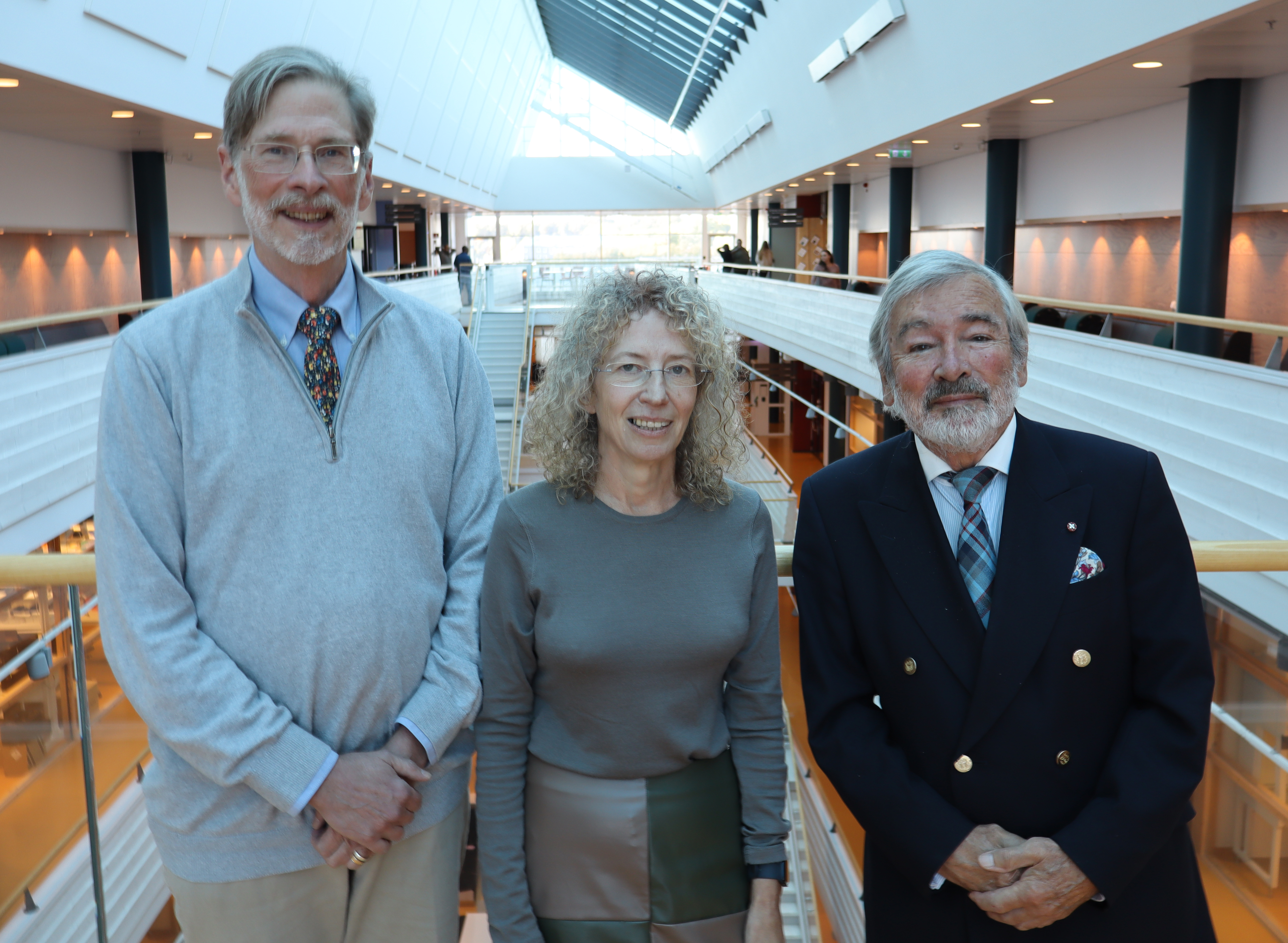Please tell us about yourself and your background as a researcher.
– I am an epidemiologist, veterinarian, and specialist in 'One Health' and food safety with more than 20 years’ experience in low-income countries. I graduated from several leading universities and currently I am a professor at the university of Greenwich and joint appointed senior scientist at the International Livestock Research Institute (ILRI), Nairobi, Kenya where I lead the food safety theme in ILRI’s One Health Centre.
– My research interests include food safety, emerging diseases, gender studies, and animal welfare. My career has spanned the private sector, field-level community development and aid management, as well as research. I have lived and worked in Asia, west and east Africa and authored or co-authored nearly 300 peer-reviewed publications as well as training courses, briefs, films, articles, chapters and blog posts.
– My research programme focuses on the design and promotion of risk-based approaches to food safety in livestock products in sub-Saharan Africa and South Asia. I am also involved in Ecohealth/One health approach to the control of zoonoses diseases and agriculture-associated antimicrobial resistance.
This week you are appointed honorary doctor at SLU. What does this mean to you and to your career?
– It is a great honour which I am delighted to receive. I have been visiting SLU regularly for over a decade as part of a long-term collaboration between the CGIAR and SLU.
– The CGIAR is the world's largest publicly funded agricultural research network committed to agriculture innovation for Farmers and Food Systems in the Global South. It is present in four continents with nearly 10,000 staff of 128 nationalities and has shown a ten-fold benefit to cost ratio over 50 years of research.
– Swedish scientists have always been active in working for and with the CGIAR. My research on 'One Health' has benefitted from collaboration with Swedish scientists, Swedish funding, integration of Swedish graduate fellows in my research, and Swedish academics co-supervising developing country graduate fellows.
What subject will your lecture on Friday cover, and what are the main messages that you would like to send to those who are not able to attend?
– I will lecture on my research on food safety in informal markets of low-income countries. These markets provide most of the fresh food consumed in Africa and Asia and offer many benefits to nutrition, health and livelihoods. At the same time the health burden of diseases acquired from food in these markets is comparable to that of malaria, HIV-AIDS or tuberculosis, and these informal or wet markets have also been strongly linked to the emergence of disease like Ebola and COVID making de-risking informal markets a priority challenge for global health.
– I will present research into a novel solution for this difficult context. This is the “three-legged stool” approach which shows that food safety can be improved if, and only if, three criteria are met: 1) Enabling regulatory environment; 2) training and simple technologies for informal sector workers; and 3) motivation and incentives for behaviour change.
ILRI and SLU have a longstanding collaboration. Can you give some examples of successful cooperation/projects between the two? Maybe some projects that you have been or are involved in.
– I currently co-supervise several ILRI PhD students enrolled at SLU or supervised by SLU academics. Their projects give a flavour of the collaboration:
Meseret Bekele is working on interventions to improve food safety in Ethiopia. She is conducting research on the knowledge, attitude and practice of hygienic handling of poultry within households. A focus is traditional methods with potential to improve safety such as scrubbing chicken skin with pea husks and marinating in lemon.
Maureen Kuboka is conducting the first systematic literature review and field assessment of food safety in informal markets of Burundi, a country which has been neglected in terms of food safety research. She is also evaluating an intervention based on the three legged stool aimed to improve food safety and business performance among butchers in Nairobi.
Trang Le has been leading a large randomised control trial to evaluate the impact of a training, equipment and “scores on doors” intervention on food safety in Vietnam. This is trialing the idea of deploying highly visible “stars” on food stalls to indicate their food safety rating to see if it can increase consumer demand for safe food as well as vendor willingness to change behavior to earn stars.
As we understand it there are three honorary doctors from ILRI visiting SLU this week, Professor Thomas Randolph, Professor Brian Perry and yourself. I guess that is also some kind of proof of our good relations. Do you have any comments on that?
– Yes, it is a great occasion to have three honorary doctors together. Brian Perry gave a special seminar at SLU today to reflect on the SLU and ILRI relation over the years.
Thank you Delia for taking the time. Good luck with your lecture tomorrow and with the doctoral award ceremony on Saturday!

